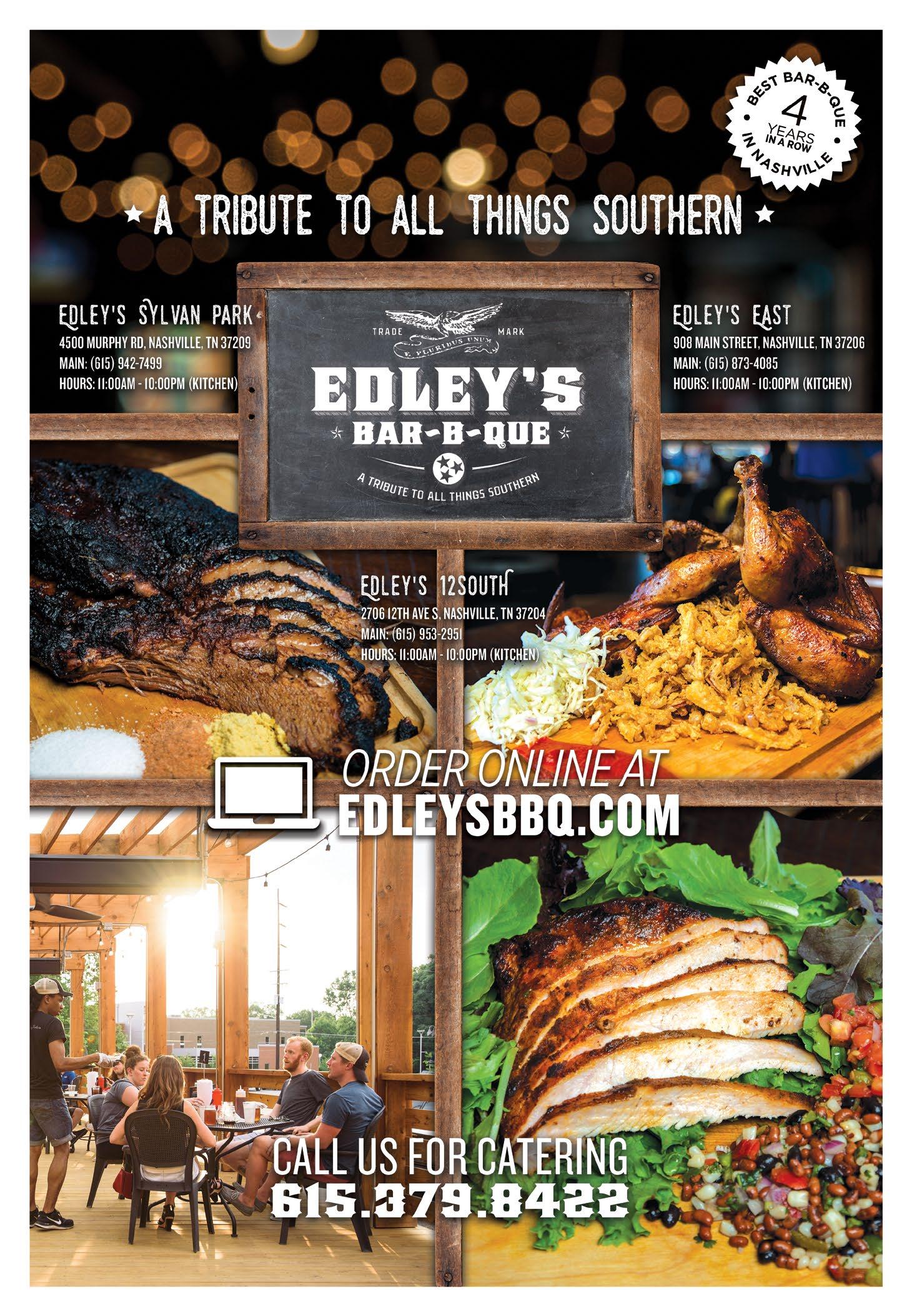










Contributor Board
Amber DuVentre, Chair
Christine Doeg, Secretary Wade Nelson Jr., Treasurer Kerry Graham, Demetria Kalodimos, Robin Kimbrough-Hayes, Jim Shulman Drew Morris
Contributors This Issue
Maurice B. • Shawna B. • William B. • Omari Booker • Mccollonough Ceili • Chris Scott F. • Mark Forshaw • FreepressGMA • Ben Gibson • John H. • Sean L. • Mr. Mysterio • Joe Nolan • Jekaterina Schneider • Judith Tackett • Lora V.
Contributor Volunteers Ann Bourland, Andrew Kuluk, Andy Shapiro, Deborah Narrigan, Jamie Dore, Logan Ebel, Loren Montoya, Marissa Young, Matthew Murrow, Michael Reilly, Susan Richter, Tyler Samuel


Venmo has canceled our account, but you can still pay using Square! You must identify your vendor so we know where to send the payment. Here's how:
Use your phone camera and scan the code on this page or on the top left corner of the cover of this paper. This will take you to the landing page: thecontributor.org/pay.
Type in the amount you wish to pay. The paper costs $2. Tips are welcomed. Vendors get paid by the next business day.
Program Manager
Lindsey Longoria Housing Stability Guide
Zero Mannino Housing Stability Guide
Raven Nye Director of Quality and Training
Jay Smelley Administrative Coordinator
Andrew Terry IV Program Operations Team Lead
Carli Tharp Housing Stability Guide
Barbara Womack Advertising Manager
Will Connelly, Tasha F. Lemley, Steven Samra, and Tom Wills
Contributor Co-Founders



Since The Contributor started in 2007, more than 3,200 different vendors have purchased $2.3 million worth of The Contributor and sold over six million copies, generating over $15 million in income for themselves.
In 2019, our C.O.V.E.R. Program (Creating Opportunity for Vendor Employment, Engagement, and Resources) was the natural expansion of our mission of removing obstacles to housing. We now offer full case management, assistance with housing and rental expenses, addiction recovery, health insurance, food benefits, and SSI/SSDI
Editorials and features in The Contributor are the perspectives of the authors. Submissions of news, opinion, fiction, art and poetry are welcomed. The Contributor reserves the right to edit any submissions. The Contributor cannot and will not endorse any political candidate. Submissions may be emailed to: editorial@thecontributor.org
Requests to volunteer, donate, or purchase subscriptions can be emailed to: info@thecontributor.org
Please email advertising requests to: advertising@thecontributor.org
The Contributor P.O. Box 332023, Nashville, TN 37203 Vendor Office: 615.829.6829






Tell us a little about where you came from.
Shawna - “I came from Nebraska in a small town. And I’ve lived in different places. I’ve moved around. I’ve been in Nashville since 2015. I moved back to Nebraska in 2020 and just came back down here last year.”
Jim - “Born and raised in Washington State. Traced my roots back here to Nashville, and decided to come out in 2011.”
Do y’all like it down here so far?
Jim - No … There’s not a livable wage, and people say there’s jobs but no one wants to flipping hire anyone. There’s no affordable housing. The city is more concerned about the tourists’ money than they are about anything.
What brought you to The Contributor and made you want to stay at The Contributor for this long?
Shawna - I stated in 2016 when I found out about it from another vendor while I was walking downtown with my family. I decided to sign up, and I’ve been with it ever since.
Jim - I signed up originally because I needed income.
Tell me about your interactions with customers.
Shawna - Since I already had customer service experience, certain interactions with customers are nothing to me. Some of them
BY JAY SMELLEY, CONTRIBUTOR ADMINISTRATIVE COORDINATOR
you get along with, and some of them you don’t. But they still want to help out if they can. My customers are friendly!
Jim - It’s not so much the customers who are rude, it’s the idiots out here who yell out there car, “Get a job fat ass.”
Shawna - He experienced that yesterday.
Jim - When that happens, I just clap back and let it go. It’s not worth my time, not worth the heart ache, not worth the stress… There’s one thing I would want customers to know is you don’t have to give money to these people holding signs up. They might try to convince you that The Contributor is illegal when in fact, it’s covered under the first amendment of the Constitution. If you have trouble with someone flying a sign, you can call the police out. It’s the only way Metro is gonna crack down on them.
Do you being at The Contributor is helping you transform your life for the better?
Shawna - Kinda is. Sometimes it can be good, but sometimes it’s not so good.
Jim - It’s making it where you can at least eat every day. It helps you survive each day, at the bare minimum… I know so many people are just one paycheck away from being on the street themselves. Even if it’s 50 cents people can give, that’s something and it adds up. If that’s all someone can afford, I don’t argue with it. Change spends just like dollar bills. If you can help, help, if you can’t, don’t, but don’t look
down upon us. It discourages people when you look down on us.
What is one of the biggest things that The Contributor has helped you with?
Shawna - They’re trying to help me get into housing. We’re really close. Just waiting on paperwork to come back. I’ll still go out and sell when I get housing.
Jim - It might not be as often, but we’ll still be out selling.
If you had one piece of advice for other vendors, what would it be?
Shawna - I’d say just do the best you can. If you don’t make very much, don’t worry about it. You can always go out the next day and make more then. That’s the way I look at it.
Jim - Keep your head up. There have been some days I’ve been out for 12 hours and made two dollars. And the next day I went out and made two hundred dollars. Every day is different and every day is an opportunity to make a new customer. I’ve met people who haven’t bought a Contributor in years, but they decided to buy one from me, and I brought them back.
Shawna - I had a customer on Saturday who gave me five dollars and I said, “Would you like to have a paper?” And they said, “Oh yeah I haven’t read it in a while.” I may have brought them back. The more customers you get, the better you’ll do.
What’s one strategy that you use right now to help you get more customers?
Jim - Smiling and waving. It does not matter if you’re standing outside a drive through or walking up and down the sidewalk. Wave like you mean it. It’s going to draw the attention to you.
Shawna - You don’t always have to smile at every car, but I always wave.
Jim - The more you look like you’re having a good day, the higher chance you’ll sell a paper. I’ve learned that from years of selling the paper. And you never know if that person you smile and wave at is having a bad day, and that changes their day.
What do you guys do when you’re having a bad day but you have to go sell papers?
Shawna - I just try to think of how good you’re gonna do.
Jim - I start cracking jokes. I’d rather crack jokes to get myself in a good mood. It’s not the customer’s fault i’m in a bad mood, so I shouldn’t take it out on them.
Shawna - If you can make the customers happy, you’ll make yourself happy.
Jim - The one thing that brightens up our day the most, is pets and kids. We have had kids waving at us, and we actually had a pit bull the other day love all up on us when they were at a stoplight.
BY BILL CAREY
There’s a hill south of downtown Nashville that is home to Carter-Lawrence Elementary School and several sports fields, one of which is Belmont University’s home baseball stadium. On a Friday a couple years ago, I took my dog to the top of it and saw joggers, people playing softball and students taking part in their annual field day. It was a wonderful place to be.
However, more than 100 years ago, the Ku Klux Klan held its most widely viewed meeting ever in Middle Tennessee there.
On the night of June 1, 1923, residents of Nashville were mesmerized by the sight of a huge cross lit by incandescent lights on the hill.
The Nashville Tennessean had a frontpage article about the event the next day. “Approximately 1,000 Klansmen, dressed in white ... paced slowly along the outposts and inner circles of the carefully guarded peak, while an initiatory class of 500 persons knelt, and with upraised arms swore allegiance to the Ku Klux Klan as a ‘body created for the reservation of 100 percent Americanism.’”
According to the story, an estimated 5,000 people migrated to the base of the hill to get a closer look. They were stopped by members of the Klan from proceeding
past a pre-designated boundary — although reporters were allowed to go closer.
The front-page story reminds us that the KKK was at the peak of its power a century ago. It was a major force in state and national politics and had millions of members across the U.S. (membership estimates vary). Unlike the Klan of the late 1900s, which held meetings at secret locations, the Klan of 100 years ago was hard to avoid.
In Nashville, the Andrew Jackson Chapter had a well-publicized headquarters and bought ads in the paper. “You are hereby notified that the next open air meeting will be held Friday evening, June 22, at 7:30 p.m. at our new home, corner First and Cleveland Streets,” ran an ad in the Tennessean only a few weeks after the June 1 meeting. On June 22, a reported 200 new members joined up.
The next year, 1924, the Klan signed a lease on a mansion and surrounding property at the corner of Sixteenth Avenue and Division Street, then spent a reported $60,000 to convert its large back yard into a meeting space for 6,000 people. (This would have made it, by far, the largest gathering space in Nashville at that time.) Atop the mansion, the Klan placed a large cross, lit by 300 light bulbs.
The Tennessean ran several small items about events at Nashville’s Klan headquarters during the next year or so. The day after Thanksgiving 1924, a musical program was staged there, attended by 200 women who were all given carnations. That night, 350 more members were initiated, bringing local membership up to about 2,000. In 1925, Nashville’s morning newspaper had small articles about revivals, lectures and Daughters of the Confederacy gatherings that took place at Sixteenth and Division. “The Protestant public is invited,” mentioned one article about a lecture on evolution.
However, as stories spread about KKK atrocities, the Klan’s reputation declined precipitously. The cozy relationship between the organization and The Tennessean appears to have vanished by 1927. The Klan abandoned its Sixteenth Avenue location within a few years, and the city converted the site into a playground in 1939.
A generation later, the Country Music Association began raising money for a Country Music Hall of Fame and Museum. In 1963, Nashville Mayor Beverly Briley announced that the city was donating a piece of land to the cause consisting of “a small park at the
Nashville Public Library Is Looking for Music City’s Home Movies
Nashville Public Library is asking for Nashvillians to send their home movies. Nashvillians can now get the memories, moments and milestones once captured on VHS and Betacam digitized, thanks to the Library’s new Nashville Neighborhood History & Culture Home Movie Project. Applications to participate are open now until Oct. 23. “When we share our stories as a community, we learn about ourselves and about one another,” said Library Director Terri Luke. “The Home Movie project is another opportunity to come together by preserving stories that, without digitization, could be lost to future generations.” NPL is focusing on home movies from Nashville’s many communities — backyards, living rooms, kitchens, ballfields and gathering spaces of all types that, together, illustrate the richness of life in Music City. Preservation experts will select home movies recorded on VHS, Betacam, Hi8, miniDv, 16mm film and similar formats, digitize them and make them available online, for free, to their owners and the public. Selected participants will bring their videos to a special collection event at the Bordeaux Branch Library at 4000 Clarksville Pike on Oct. 25. For decades, Nashvillians have entrusted their stories to NPL through its Metro Archives and its Audiovisual Heritage Center (AVHC), as well as the Library’s Special Collections division. The AVHC houses more than 100 years’ worth of recordings depicting
life in the southeastern United States. “This is the latest effort in our mission to be a trusted home where Nashville’s memories are celebrated, cherished, and accessible to all,” Luke said. The Nashville Public Library Foundation (NPLF) funds the AVHC. STAFF REPORTS
The Tennessee Department of Human Services announced updates to Supplemental Nutrition Assistance Program (SNAP or food stamp) work requirements for Able-Bodied Adults Without Dependents (ABAWDs) following the passage of HR 1 in July 2025. Upon implementation, the work requirements for the SNAP Able-Bodied Adults Without Dependents (ABAWDs) will require customers to follow certain work rules to maintain SNAP eligibility. The updated ABAWD work rules will apply if adults are between 18-65, don’t have a disability, dependents or do not live with children under 14 years old. ABAWD may only receive SNAP benefits for three months in a three-year period unless they: Work, volunteer, or participate in a job training program at least 20 hours a week (80 hours a month). ABAWD customers may lose SNAP benefits after three months if they do not adhere to the updated ABAWD work requirements. “We want to ensure Tennesseans who may be impacted by these federal changes are fully informed and prepared to make any necessary adjustments,” commented TDHS Commis -
sioner Clarence H. Carter. “Our priority is to support our customers with the resources they need to comply with the updated requirements while maintaining access to vital nutrition assistance.” Some customers are excluded from ABAWD work requirements and may still receive SNAP benefits if they are: under the age of 18, are 65 years of age or older, are pregnant, work, volunteer, or participate in a job training program at least 80 hours a month or live with a child under 14, care for someone who is sick or disabled, get disability benefits like Social Security, SSI, or VA, have a health problem or temporary disability that keeps them from working, enrolled in school at least half-time, in a drug or alcohol treatment program or receive unemployment benefits. Customers who believe they qualify for an exemption are encouraged to upload their verification documents via the One DHS Customer Portal (https://onedhs.tn.gov/csp) no later than Oct. 31, 2025. STAFF REPORTS
The Trump administration began posting plans over the weekend that detail how hundreds of thousands of federal workers will be furloughed during a government shutdown, while others will keep working without being paid. The updated guidance gives the clearest picture yet into how President Donald Trump and White House budget director Russ Vought hope to reduce the size and scope of
corner of Sixteenth Avenue South and Division Street, which provides a commanding location.”
At the time, there was no mention of the fact that the land had previously been the Nashville Klan headquarters. When I first encountered these newspaper clippings around 2002, I asked many knowledgeable people whether they knew the Country Music Hall of Fame had sat on land that had once been a Klan venue.
The only person who knew this was Andrew Benedict, the longtime president of First American National Bank. He said he knew about the history of the site because he had helped raise money for the Hall of Fame in the early 1960s. Benedict, who died in 2008 at the age of 94, was the only person who knew. Suffice it to say that it is interesting what we choose to remember about history.
Thanks to Allen Forkum, editor of the Nashville Retrospect, for his assistance in researching this column.
Bill Carey is the founder of Tennessee History for Kids, a nonprofit organization that helps teachers cover social studies.
government when given increased authority over the federal workforce during a funding lapse. A shutdown will begin Wednesday unless Republicans and Democrats in Congress reach agreement on a stopgap spending bill. Congressional leaders were set to meet Monday afternoon with Trump, but it was unclear if any agreement would result that would avert a shutdown. The Defense Department’s plan shows it would keep about 406,500 of its 741,500 civilian employees working without pay during the shutdown, with the remaining going on furlough. The nearly 2.1 million military personnel housed within the department would continue to work throughout a shutdown but would not be paid until after it ends. The plan says the Defense Department believes operations to secure the U.S. southern border, Middle East operations, Golden Dome for America defense system, depot maintenance, shipbuilding and critical munitions are the “highest priorities” in the event of a shutdown. Medical and dental services, including private sector care under the TRICARE health care program, would largely continue at the Defense Department, though “(e)lective surgery and other routine/ elective procedures in DoW medical and dental facilities are generally not excepted activities, unless the deferral or delay of such procedures would impact personnel readiness or deployability.” Read a full version of this story at tnlookout.com. JENNIFER SHUTT | TN LOOKOUT
In the past decade, people working in the nonprofit sector have increasingly become interested in the creation of housing units to serve vulnerable populations. One local leader who has made the shift from social work to housing development and property management is Nathan Harmening.
Since April of this year, Harmening has served as the vice president of operations for AGB Real Estate, the development company that has opened 250 permanent supportive housing units in two complexes called Wallace Studios and Greenview Apartments. Prior to joining AGB Real Estate, Harmening was the executive director of I Am Next, an organization you may have read about in our July16 issue when Contributor vendor Norma B. featured their work with young people aging out of foster care.
At AGB Real Estate, Harmening tackles a dual role of overseeing the property management operations for the company as well as scaling the supportive housing portfolio.
“We’re trying to be as trauma centered as we can in our property management approach,” Harmening said. “And we’re also really passionate about creating more housing opportunities for those vulnerable communities.”
Prior to becoming the vice president of operations for AGB Real Estate, you were the executive director of I Am Next. What got you started on this journey and why did you decide to move from the service provider to the landlord side?
This journey started in 2012. I was a social worker at that time. My job was to transport kids who were from Nashville, but placed in state residential facilities all across the state back to Nashville for court, home passes, therapy — whatever the need was. I was basically a glorified Uber driver. When a young person turns 18 years old in a residential facility, they have to leave on that day. So, my job was to take them to the next spot. More times than not, I was dropping them off in the worst possible places and sometimes even in homeless shelters. Housing became an instant passion of mine because of that.
It was very clear that our young adults aging out of foster care had extremely limited access to quality housing. So, I wrote a proposal and got it in front of our leadership at Omni Visions and was able to start our very first group home. We had five beds in a single-family home where we housed young adult males, 18 to 21, who were participating in extension of foster care. My love for housing started then.
Fast forward about 10 years, we were able to participate in a tenant-based rental assistance voucher program through THDA (Tennessee Housing Development Agency). It was a pilot where we administered the vouchers. The very first time that I handed one of my young adults aging out of foster care the keys to their very own apartment was one of the most life-changing days I’d ever experienced. We were very proud of the group home that we created, and we have since created
BY JUDITH TACKETT
30 of those beds spread out between Nashville and Memphis. But there’s not a ton of autonomy and privacy when you’re sharing a home with four other people. Having the opportunity to move a young person into their very own apartment, that was private and locked and no one else could get into, was revolutionary for my thought process.
As an executive director of a nonprofit, I always knew that I wanted to pursue the housing path. And as part of that pilot program, I connected with Ryan Samuel and Adam Rosenberg of AGB Real Estate, and we were able to house almost 25 young adults in one of their communities. I built a relationship with them, and when they called me and offered me a position with AGB Real Estate to lead their operations, it was the most organic and natural step forward in my career to get into development and be able to actually develop these housing opportunities.
What does a typical move-in look like for you from a) the provider side, and then b) how does that move-in differ from a landlord perspective?
You know, the provider is the parent. When a parent moves their kid into college for the first time, what do they do? They shower them with clothes, laundry baskets, cleaning supplies, food, all the things they need to get a really good start. And then, they have a hard time leaving and they have all the emotional issues that come from their kid leaving the nest.
But a provider is not a lot different. When I moved young folks into a group home or an apartment complex, it was the same thing. It was like, Hey, let’s go, let’s do the paperwork. I’ll take you out to lunch and do it. Let’s make this as painless as possible. And then once we’re done with that, let’s go to Walmart and let’s load up. I’m going to get you at least two weeks’ worth of groceries. I’m going to get you all of your laundry supplies, your cleaning supplies, and depending on what your clothing situation looks like, we’re going to make sure you have clothes, blankets, pillows, blinds, artwork.” I mean, how can we make this home a home? And then help them set it up – again, just like a parent would – we’re going to help you decorate. We’re going to help you make your bed. And then we’re going to give you the key, and we’re going to send you on your way. And here is my number, I will be available in an hour if you need me. I’ll be available in four hours if you need me. I’ll come see you tomorrow.
And then, we really have kind of an intense relationship with them on the front end while they’re acclimating, while they’re getting over the nerves of being alone. Eventually the goal is to let them be and let them come to us when they need support, and that support looks a lot different for every young person.
As a landlord, we take pride in the fact that we do try to go above and beyond as landlords for vulnerable communities and supportive housing. Our process is, we host the individual to sign the lease. We try to get to know them. We offer them their welcome basket, [but] as a landlord, we’re limited. We
don’t have external funds coming in that can help us really buy everything they need. But we do have some supplies, and so we make sure that we give them everything that we can give them and send them on their way.
When it comes to a conventional property, or let’s say someone who does move into one of our communities who isn’t coming out of homelessness or working with a provider, move-in can be pretty sterile. Come in, sign the lease. Hey, welcome to this community. Here’s your key. Here’s the mailbox. Here’s how you submit a maintenance request. Good luck. Make sure, rent is due on the first, no later than the fifth.
So, we do a little bit of both. For folks that come in that don’t need the things, then we leave them alone, and we take a more traditional approach. For folks that do [need more], we try to go above and beyond and try to personalize it as best we can.
Do you see a lot of case managers come along to the lease signing as their client moves in?
No. The quickest answer to that is no, we don’t.
It absolutely does happen sometimes, but candidly, what we get more than anything is a notification from a case manager that this person will be there at this time. Now, that’s not in every case. We do have some really good case managers that will show up on lease signing day and just make sure they’ve gotten everything taken care of. But does it happen as often as it should? Absolutely not.
You are working with a vulnerable population here in Nashville, including people who just moved from outdoor situations — at times directly from encampments. What types of support services do you see they need from that landlord perspective?
My opinion on this may differ from a lot [of people]. And I want to start by talking about what they don’t need. What they don’t need is a case manager that sees them once a week, that treats them more punitively than relationally; someone that comes in and yells at them when they do a thing wrong. That’s certainly what they don’t need.
You can get into basic needs for sure and say, look, yeah, they need food, they need clothing, they need blankets. And we try to help. We connect them with The Store on 12 South, so they can go grocery shopping twice a month. We give them a bus pass. We try to meet some of their basic, tangible needs.
But when it comes to more of a case management need, what they need is someone onsite who is not hiding away in an office, who is out and has a presence at the community, who actively tries to create healthy relationships with these folks and is there to help them whenever they need [with] what they need. A lot of these folks are so disenfranchised already, and when they hear case management, it can be a trigger because the amount of “case managers” these guys have had in their lives is more than we can even count. So I personally want to get away from
that term, and I want to offer (service providers) that are on-site who can put them in their car and take them to a doctor’s appointment, who can take them grocery shopping, who can go in and help them learn how to operate their stovetop, and who are an assertive presence to make sure that we’re keeping folks accountable, but be in a relationship rather than be a sterile case manager that is part of “the system” or “the man.”
When you offer support, but you do it in a way that’s not mandatory, [residents] come to us on a daily basis. They come to property management on a daily basis and say, “Hey, you know, this is going on, I need this. I’ve got this issue here. My mom is not feeling well.” It’s a range of things from “I need a bus pass” to, “I just need to talk to somebody.” So, in a perfect world, we at AGB would employ our own onsite community support specialists because I think that helps create a culture. And when you have a really healthy culture and a supportive culture, it builds trust with the community members. I think that works for the benefit of both the individual and for the property.
From a landlord perspective, when you have someone who has reliable and healthy connections and takes pride in the community that they’re living in, that’s more cost effective for the landlord because it keeps things more intact. I’d much rather see a nimble, almost peer support-led group of folks interacting daily, and on all shifts — a couple community support folks during the day when doctor visits are happening, when people are grocery shopping, and then folks that are there overnight to de-escalate and provide intervention when it actually happens — instead of having to call a case manager and hoping they show up within a week to help someone who needs help right now. In a perfect world, we at AGB would employ our own on-site case manager.
What opportunities do you see for Nashville to make a dent in homelessness?
We obviously know that there’s a huge need. I hope that we can come up with a solution that makes sense and that brings everyone to the table. I think the Barnes Fund has got the potential to be a great catalyst for that. When it comes to opportunities to make a dent in homelessness, I think we’ve got to really look at public-private partnerships and what we are so proud of with AGB is that we can bring units to the market very quickly and efficiently. We don’t have to wait for antiquated bureaucracies to follow their old, outdated processes. We can use private equity to do really good work and do it quickly. I’m really excited about Hospitality Hub, and I’m looking forward to seeing what they can bring to Nashville. They’ve got a great model in Memphis. I’m really excited about other partnership opportunities that we are working on.
But I do think it all comes down to learning how to utilize and leverage private equity to bring units to the market quickly and efficiently, so that we can house individuals and then partner with nonprofits and governments to make it successful.
Written by Chris Scott Fieselman, Vendor #0015
There will be another time... There will be another place... Better off than a Life of Crime, And the waste of another, “God Given Day.” All because of?
“One Foolish Mistake.” They’ll always regret it, And never forget it, The mess of their life, That they make?
A heart knows the difference, Between right and wrong?
Maybe they’ll remember, That little reminder, Left behind... They might find... Like those words they recall, That they heard in a song?
Plans and intentions, All dependent upon? The Power of Penmanship, And the faith that it takes, To be Strong?
Talk to them... Talk to them... Walk the Walk, And make things happen. A song a week for “Music City?” Again and Again and Again... Somebody has to be the bigger person, For the sake of their fellow man.
The words of a Super Hero? Is there really - Such a thing? Can it bring about change? Can it make a difference? Can it prevent something?
Terrible - From happening? Is it something someone? Wants to put to music? Is it something?
Someone wants to sing? To bring someone back, From the very brink? To reach them and teach them, And get them to think...
What am I standing up for? And what am I standing against? A simple piece of parchment, And all those, “High Hopes and Big Plans” Trying to get them to understand. How’s that working out my friend? How’s that working out? What Becomes of a Song?
Written by Chris Scott Fieselman, Vendor #0015
Days wasting away in prison. Only took one bad decision. All their hopes and dreams are gone, Because of what they’ve done. There’s reward and there’s penalty. Some things just have to be. Blame it all on someone else, But you brought this on yourself.
You Can’t Out Run the Storm. Trouble’s bound to come along. When you know, What you’re doing’s wrong. You Can’t Out Run the Storm. Lightning flashes, Thunder warns, And You Can’t Out Run the Storm.
There’s always a consequence, Gonna get you in the end. You can take the easy way, But there’ll be a price to pay. “Justice will Prevail,” Take the wind out of your sails. You can run, But you can’t hide. It’s going to be, A Long Hard Ride.
You Can’t Out Run the Storm. Trouble’s bound to come along. When you know, What you’re doing’s wrong. You Can’t Out Run the Storm. Lightning flashes, Thunder warns, And You Can’t Out Run the Storm.
Choose your destiny, What you’ll do, And what you’ll be. The road you’re going to take, And the choices that you make. Twenty Years to Life, Is hard to do. That’s why I hope, These words, Get through to you.
You Can’t Out Run the Storm. Trouble’s bound to come along. When you know, What you’re doing’s wrong. You Can’t Out Run the Storm. Lightning flashes, Thunder warns, And You Can’t Out Run the Storm.

DOWN
ACROSS
1. *The Big Bad Wolf: “I’ll ____ your house down”
5. Edgar Rice Burroughs’ Kerchak or Kala
8. Cosine’s buddy 12. Target of grand theft
13. Influencer’s journal 14. Food-grinding tooth 15. Bear’s hang-out 16. Like a maxi skirt 17. Get up 18. *Robert McCloskey’s “Make Way for ____” 20. March Madness org. 21. Expenditure, in the olden days 22. *”Four and twenty blackbirds baked in a ____” 23. Turn pale 26. Lachrymatory agent (2 words)
30. Swimmer’s distance 31. Rinse and ____ 34. Consequently 35. Join forces
37. Bruin legend Bobby 38. Jury duty event
39. Per person
40. Hockey player, e.g. 42. Approximated landing time
43. What naughty children do 45. Fortification made of wagons
47. Preceding month
48. Unnecessary embellishment
50. Customs document
52. *He had a terrible, horrible, no good, very bad day
56. Popular pie nut
57. Not final
58. Just a little
59. Choice dish
60. ____-do-well
61. Sudden and brilliant success
62. Doofus
63. Is, in France
64. Fail to mention
1. Like a certain eagle
2. Oahu shindig
3. Related to ear
4. Exert persuasive powers (2 words)
5. Jennifer Aniston’s movie “____ Came Polly”
6. *Canine father in Dodie
Smith’s “The Hundred and One Dalmatians”
7. *Dr. Seuss: “I do not like green ____ and ham”
8. *Philosopher in American edition of “Harry Potter and the Philosopher’s Stone”
9. Hipbone
10. U.S. space agency, acr.
11. *”I heard him exclaim, ____ he drove out of sight, Merry Christmas...”
13. Not serious
14. Bipolar disorder phase
19. Filthy cabbage
22. Favorite student
23. Protected steel from rust with coating
24. Hawaiian veranda
25. Long stories
26. *The Queen of Hearts baked more than one of these
27. “In the Hall of the Mountain King” composer Edvard
28. Popular gemstone
29. Type of renewable energy
32. *Janette Sebring Lowrey’s “The ____ Little Puppy”
33. Pitcher’s stat
36. *”One ____ and One Nights”
38. ____-____-la refrain
40. Group of exercise reps
41. a.k.a. philosopher’s stone
44. Flavorless
46. Aluminum+nickel+cobalt, magnetic alloy
48. What time does
49. Button on electrical outlet
50. Bride’s cover
51. International Civil Aviation Organization
52. *Green Gables resident ____ Shirley
53. Gloom’s partner
54. Evening purse
55. Wholly engrossed
56. Pipe material, acr.




Jennifer Alexander, longtime Contributor vendor, artist, poet and writer, died Sept. 19 after suffering from a terminal illness. She was 74 years old.
Jen was known at the newspaper for her rigorous approach to art and writing. Every piece of the piece meant something to Jen, and she applied a judgemental eye to any artistic approach she thought was lacking. Jen could be kind, self-deprecating, but her wit was standout. Whether a text message, a letter, an email or a poem, it was always clear she had drafted it to her exact liking before hitting send.
Many at The Contributor remember when Jen first arrived to sell the paper. She crafted a sunhat covered in sunflowers, sewed a smock from a Contributor T-shirt and often added sunflower embellishments to any item she wore on her person.
Jen was not an open book, but her writing often revealed deep personal (and universal) truths. She was both a brilliant and prolific writer who focused on marginalized experiences and loved to pick a fight with her words. During the pandemic in 2020, Jen wrote a letter to The Contributor’s amateur astrologer Mr. Mysterio. It was both packed full of satire and injected with the truth about how she was really feeling.
“I don’t have a television — haven’t for many years,” she wrote. “But when I heard on my magic radio box that George Floyd had been murdered, something inside me broke. In the early days of the lockdown, because of a heart condition and my type A blood, I was afraid if I went outside I’d get Covid and die. After the horror of hearing George in the throes of death call out, “Mama”, I was now afraid that I wouldn’t die. I could not remember any event in my life that was more heartbreaking than that. And I’ve had some heartbreak.”
Piece by piece, over the more than dozen years she was a friend to folks at the paper, details would reveal themself about what Jen had suffered in her life, though she rarely ever revealed those details directly in conversation.
She is survived by her four children: Joshua Frost, Matthew Thiele, Elizabeth Lutes, and William Ramsay. She was predeceased by her son Evan Thiele, who died by suicide in 1998.
BY BARBARA WOMACK
Yesterday, I had a friend named Jen, some called her “Sunflower”
And
Yesterday, I had a friend who loved baseball and basketball
And
Yesterday, I had a friend who told me about her travels to California where she experienced many earthquakes, and to Montana where she described the “Big Sky” as something amazing.
And
Yesterday, I had a friend who was an insightful, Journalistic genius
And Yesterday, I had a friend and confident who would chastise me for not being more sociable
BY AMANDA HAGGARD
Her son Joshua Frost was the only child she remained connected to in late life, and though they struggled to find footing in their relationship, he says he feels grateful that she found a way to cope with the things life threw her way, and that finding any way to connect with her was “always worth the fight.”
“She was always willing to talk about her art,” Frost says. “She was always willing to talk about writing. She pushed me as much as anyone in my life has pushed me to write and to do my art. I’m a maker, so I am heavily into making things, but not just kind of passively. I obsess about them, and I think I get that from her. I think she had this obsessive quality about her to create and to interpret the world around her in a unique way. My mother was a genius … but she also had a lot of difficulty processing her own reality, so she would create fantasies about her reality that helped her to cope with what actually was going on in her life.”
Jen was a staunch supporter of women’s rights. She absolutely hated guns and the American obsession with them. She was an avid reader who passed her love of literature on to her children.
“She made sure that when we were small children that we were exposed to all kinds of different literature, and she obsessed over our reading level,” Frost says. “So she would go, at least with me anyway, she would go over with us individually, the things that she wanted us to read. And from a very early age, she read to us, and it was a point, not a point, let’s say it was a quality of my upbringing in the beginning, to have literature and writing and reading as a fundamental basis for interpreting the world of things for negotiating and interrogating my natural world.”
The Contributor’s Director of Finance Cathy Jennings called Jen one of the most gifted writers she’d ever known.
“She had a way of going straight to the heart of a matter — her words could move you to tears, or to anger, depending on which side of the truth you stood,” Jennings says. “Jen never soft-pedaled the reality she saw around her. She was unflinching in naming injustice and transparent about the ugliness she witnessed.
And
Yesterday, I had a friend who loved Tom Wills. She told me that Tom told her that he would not make it easy for her to restore her self esteem, but he would give her the tools to do it for herself; he gave her The Contributor
And
Yesterday, I had a friend who loved Linda Bailey. She was always concerned about Linda and her mental and emotional well being.
And
Yesterday, when Kamala Harris lost to Donald Trump, Jen said, I don’t know Barbara, I can’t think of a woman who who is man enough to be elected president by the American people. We don’t trust women. We only trust massive bags of dung!!
And
Yesterday, I had a friend that would invite me to lunch at at her favorite east Nashville haunt
That honesty sometimes made her a difficult person for those who didn’t really know her, but to know Jen was to see her gentleness, her empathy, and her heart.”
Jennings says Jen was quick with a shy hug or a quiet I love you, adding that she felt everything very deeply. When her neighbor died during the COVID-19 pandemic alone, Jen was in deep grief, weeping with Jennings and carrying grief as though she was heartbroken for how they suffered in loneliness in their final moments.
“Jen was also fearless. When her apartment building became unsafe and unclean, she chose to leave, even though it meant facing homelessness as an older woman,” Jennings says. “She believed it was the only path toward a better life, and she walked it with courage.”
Jen struggled with homelessness almost her entire life, but her son says she always expressed a great love for Nashville and probably was the most settled here in her adult life. She lived in an apartment in East Nashville before moving into Hospice briefly where she died.
“She loved the area, she loved the people, she loved the fight,” he says. “She wrote to me when she took on [issue] of making sure that unhoused people, unhoused women, were able to access feminine hygiene products with their SNAP benefits. She was just absolutely over the moon about it. She was determined to really get somewhere. She loved contributing, and it was something that made her very happy. I remember vividly of her getting to Nashville and being happy about taking on that fight and meeting people she felt understood her.”
Frost says she was always intent on making Christmas time special, and he can now see that she was trying in all the ways she could to be a mother, even though in the traditional sense she was not a great mother figure to him.
“Life was really, really super unfair for my mom,” Frost said. “I mean, greater than normal. Life is not a fair thing to navigate anyway. But for her, it was especially unkind. … She still made sure that we felt loved though in her own way. I don’t remember anything from that early experience where I would admonish her. I know now that we probably suffered from malnutrition and
And
she would never let me pay, she would always say, “I invited you, so I will pay” but the last time we had lunch at Logans, I paid, as she was in such pain that she could not even pull out her wallet.
And
Yesterday, I had a friend who absolutely loved The Contributor. I tried to persuade her to write again and she said, “I don’t think I have anything more to give. I don’t think they even consider me a vendor anymore.” I told her that she was our “Vendor Emeritus” and she said, “I like that title”.
And
Yesterday, when I would take her to get groceries, she was nervous to use the electric carts, but I finally persuaded her to ride one by riding one myself and convincing her that it would be easier on her back pain.
some other pretty horrible stuff, but I think that my mother, as well as the stardust that made up her body, was made of love. She just absolutely was 100 percent made of love, and life did not end up the way she wanted it to. I guess we can all have a small measure of that, but my mother did understand love and she did love us, and she was just dealt a shit hand.”
In a poem in 2021 as part of our annual Poetry Edition, Jen asks the question “Who Are You?” and it can be hard to tell whether the content is focused outward or inward. Either way, her work always left us something to think about.
You’ve forgotten who you are
Cast adrift in a sea of
Fear and loathing
You watch and listen
But you do not see or hear
Buffeted by wave after wave
Of cruelty and despair
You taste the bitter brine
You struggle for breath
You grasp at the
Most convenient straw
You used to be so cocksure
You captained your ship
Confidently performing
Complicated fiduciary tasks
Loop the loops
Acts of kindness
Detached from your
Purpose driven life
You’ve lost your sense of touch
You’re cowed
By a swatch of cloth
A slight jab in the arm
That community relies on
To prove your will Your power
As you struggle
To find firm footing In your bottomless pit of Suffocating quicksand You’ve lost your faith
You’ve lost all hope You’ve lost one of another Who are you?
And
Yesterday, I told Jen that there was a Black woman who made melt in your mouth peach cobbler in Madison and she responded, “I don’t know Barbara, do you have to be a Black woman to make delicious peach cobbler.” I smiled.
And
Yesterday. I had a friend that was trying to tell me in so many ways that her days on this earth were numbered, but I paid no attention. She told me that she had a spinal injury, not knowing it was cancer!!
And
Yesterday, I had a friend who taught me the true meaning of platonic love!!!
It’s so hard to say goodbye to yesterday!!!! (Boyz 2 Men)
BY JUDITH TACKETT
The Metro Audit Committee decided in September to conduct a financial audit of the Office of Homeless Services (OHS).
An overflow room was set up to accommodate all the people that were interested in this meeting, including those called in to testify during the public hearing, which was limited to eight people, each allowed to speak for two minutes.
The audit request was submitted by Councilmember Ginny Welsch. The following is a summary of her justification for an audit (copied and pasted from her letter to the Audit Committee):
“Since the creation of the office, serious questions have been raised regarding the leadership of OHS Director April Calvin, and numerous documented examples of mismanagement have been brought forth, including but not limited to:
• Financial mismanagement and/or potential fraud related to expenditures of both federal ARP and Metro funds as well as contract compliance;
• Lack of oversight of Metro facilities, including Strobel House, resulting in harm to residents and staff opening Metro to liability;
• Staffing and hiring mismanagement;
• Overall mismanagement resulted in the failure to improve housing outcomes despite a massive influx of federal and Metro dollars, and failure to deliver on its chartered obligations to coordinate Nashville’s homelessness response through shelter management, outreach, planning council support, and maintaining an inventory of third-party service providers.”
More specifically, Welsch claims that local journalists and advocates have reported $3.2 million in suspected financial irregularities including:
• $569,000 in improper invoicing to Depaul USA, which is the contractor that runs Strobel House together with OHS;
• $565,000 in improper use from Metro’s Landlord Engagement funds;
• $130,000 in charges on a single department credit card;
• $2 million of temporary federal funds used for permanent positions, which Welsch states would create “a future ‘funding cliff’ that will require an injection of Metro general budget funds.” Welsch’s letter also points to other finance questions, some of them I would consider administrative moves that may create more transparency once corrected. Other claims include:
• Unsustainable staffing structures, including when running Metro’s cold weather shelter, and circumvention of the Metro HR hiring policies;
• Lack of transparency surrounding safety incidents at Strobel House; and
• “Operational collapse despite massive funding increases,” in which Welsch points to
» The lack of housing placement increases despite an increase in millions of dollars in investments.
» 80 non-permanent beds kept empty for a year.
» A lack of timely referrals from OHS
that resulted in additional units and services being left unused for periods of time.
» Etc.
Both Welsch and OHS Director April Calvin were given five minutes to make statements.
Welsch voiced concerns about OHS and also about the federal administration that could potentially claw back money, as she phrased it. She ended her argument stating that “an audit would assure everyone that these monies have actually been spent in the way that they are required to be spent.”
Calvin fought hard to avoid an audit, even bringing in people from Strobel House and the temporary shelter on Wallace Road to testify on behalf of the OHS (a move that can be seen as controversial in a trauma-informed environment).
“OHS is pretty much an open book,” Calvin said in her statement. “Managing our funds and contracting obligations is very important to us. We take that seriously, and we see the impact of the work on the 3,800 individual faces that we helped house within the last two years.”
Calvin said “in the last two years, our office has kind of held the line under the current housing pressures that we’ve had. We’ve held the line at 2.4 percent of an increase, and cities our size that we like to look to as model cities had an increase of 36 percent, 19 percent, 14 percent.”
Vice Mayor Angie Henderson compared the request to a similar situation the Audit Committee faced in August when determining to move forward with an audit of the office of the Assessor of Property.
“Sometimes when there is just a broad community concern around something conducting an audit allays those concerns,” Henderson said, adding that she was trying to find a way to be constructive and allay those concerns “because this is a space in government that is very fraught with a whole lot of community partners, a lot of different opinions. It’s a challenging space to work in.”
At one point, Henderson said she had heard concerns from multiple council members about OHS, not just Welsch. Eventually Henderson made the motion to add an audit to Metro’s audit plan “scoped specifically to the financial items elevated, I guess by Ms. Welsch, but not that that precludes anything adjacent or determined by that process.”
While I welcome an internal audit, it is not a moment to celebrate. It does not feel right that we had to get to this point. I want to reiterate that all this contention points to a lack of leadership, which ultimately starts and ends with the Mayor’s Office.
I publicly criticized OHS leadership, but have retreated somewhat in the past few months, as other people stepped up and paid more attention. My main concern, however, remains. I worry that we are not helping as many people as we should and that the city is not applying a Housing First approach as they claim to do.
Mayor Freddie O’Connell and his representatives have heard enough concerns from nonprofits, neighborhoods and council members to figure out that there are leadership issues at OHS.
I want to outline two of the issues I struggle with:
1. The underutilization of resources that could move people to housing quicker; and
2. The propaganda efforts that trump transparent data analysis to improve the current homelessness system.
Here is an example to support my first claim. OHS leadership stated in a public meeting in summer of 2024 that they had been keeping 80 beds at a temporary shelter location open for their next encampment closure. Those beds (actually 80 motel rooms) were ultimately unoccupied for one year. OHS defended that move saying they did not pay for those beds.
In a functioning system, those temporary units should have served an estimated 200 people, even after taking into account that it should have taken no more than three-to-four months to correct an administrative mistake OHS made in the contract management of that property.
During winter months, OHS served up to 300-plus people at Metro’s cold weather shelter. Imagine if those beds had been used during that time. This is just one example of why I have been outspoken about Metro’s current approach to homelessness.
Having said that, I also want to be clear that the criticism OHS receives does not negate the great services a lot of people are getting through the nonprofits that contract with OHS to do the work of actually housing people. I just believe more people should have been served in a more efficient and person-centered approach.
OHS correctly states that there have been thousands of people housed in the past couple of years. But OHS also creates talking points and adjusts data presentations to cover up the full picture of what’s been happening.
Since the audit request, OHS has taken to presenting their numbers over the past two years because they clearly look better that way. I have called this approach propaganda. The data is what it is, but here are options to look at it in different ways. Per the Point-in-Time Count, a
one-day snapshot conducted every year in January, Nashville has seen the following changes since the city invested millions more in federal and local dollars toward homelessnes.
Looking at that from a two-year perspective, which is what OHS is now doing:
• 2023-2025: 3,868 people housed; change in homelessness: +2.4 percent increase.
• 2022-2024: 3,767 people housed; change in homelessness: +9.2 percent increase.
And looking at the increase in homelessness from 2022 to 2025: +13.8 percent.
My point is that when Metro all of a sudden changes how it presents data to make OHS look good, it is missing the mark and reeks of propaganda rather than a transparent and open communication process focused on how we, as a community, can improve outcomes.
To be fair, OHS has no control over how many people lose their housing. But, with the increase of investments directly toward a housing-first-oriented system, I would expect the output — or housing placements — to be higher than they currently are. Which leads to the many questions that I still receive from the community: where is the money going?
For one, the fact that people still come to me rather than go to OHS — which many do in a secretive manner — is not a good sign. But I do understand why. The fear of retaliation from OHS leadership is real, a fact I can attest to. We also need to recognize that housing placements are mostly done by partner agencies, not by OHS itself. OHS is supposed to be the coordination entity that helps build a system where people receive referrals to support services and to housing as quickly as possible (see my comments above about keeping 80 shelter units open even though money was available). I believe most OHS staff are talented enough to implement solutions to such a dilemma when leadership steps out of the way.
Which makes me wonder … if we were to shave away the bloated bureaucracy that Metro has been creating around homelessness since 2022, and if we were to shift some of these millions that paid for administrative costs at OHS toward housing people (rent assistance and support services at housing complexes that could function similarly to Strobel House, etc.), would we realize that OHS is not doing as much as it could?
I don’t know the answer.
An internal audit may very well prove that OHS is a wonderfully effective and efficient entity. I truly hope that’s the case. While I do not like the way OHS’ leadership functions, I admire some of their dedicated staff. And I certainly support many of the nonprofits that are contracting with OHS and do the hard work of housing people.
But even if the internal audit — hopefully — finds that all is as it should be, what remains is still a lack of transparency and practically no oversight of OHS from the Mayor’s Office, which has backfired and has clearly harmed OHS, no matter how you look at it.
Judith Tackett is a longtime homelessness expert and advocates for housing-focused, person-centered solutions. Opinions in this column are her own.
Cynthia Florez, co-owner of Limo in East Nashville, has built more than just a restaurant with her husband, chef Marcio Florez. She’s helped create a space where community and culture meet at the table and then go home afterward.
What began as home-cooked meals shared with others grew into a food truck and eventually a full-fledged Peruvian restaurant called Limo in East Nashville. Their business is fueled by their passion for sharing the flavors of their heritage. In a conversation with The Contributor, Cynthia Florez reflected on the journey from those early days to building a business rooted in family, hard work and pride in Peruvian culture.
Tell me a little bit about what inspired you all to start your restaurant in Nashville and kind of what those early days of making a plan for a business were like for you all.
It’s been a long journey for sure. I’ve been here in the States in Nashville since 2005. When I first moved here, there was no Peruvian restaurant. There was not even a big Peruvian population at all when I first came. My husband moved to Nashville in 2008, three years later, and when I first met him, he didn’t know how to cook. I’ve been cooking since I was six years old. My stepmom is blind, so I have cooked since I was very young for my siblings. And when we moved together, I cooked for him and he was like, ‘oh wow, how did you make this, I love it.’ But then he’ll make it and he’ll make it so much better. Not that I’m a bad cook, but I don’t know, he just has the talent for it. And he decided to go to culinary arts school at Nashville State. He loved it and he did very well, and not long after he started school, he was elected to go to a national competition representing the school and he won. He was working [at other restaurants] long hours. He had the best mentors in school and at restaurants, and he was very passionate about cooking, but we just didn’t see him a lot, me and my kids. That’s when he decided that he wanted to do something of his own so that he had some more time with us because he was opening and closing those restaurants and he started with a food truck and that was 2018 when he opened the food truck.
We worked really hard and we saved enough money. Last year, we opened the restaurant, but we actually started cooking Peruvian food from home before we jumped into the food truck. So we have customers that have been in our house. We went from the house to the farmer’s market, and they just always followed. I have customers come
BY AMANDA HAGGARD
in and ask me if I remember having them on my couch. It’s crazy. It’s been lots of hard work and dedication and sacrifice, but we love what we do. I love taking care of customers, and he loves to cook, and we’re so passionate and we love our roots from Peru. We love our culture and to share it with everyone and for it to be cherished in Tennessee. It’s a great feeling.
What does it mean to you to own a business where you feel like folks are part of your community like that?
For me it’s a lot of responsibility, for sure. We have lots of employees that depend on our business to be successful,
ment. It’s so hard to find employees right now. I am very blessed that the employees that I have with the food truck have stayed with us for so many years and I have their family members, my prep cook manager, I have her husband, her sister, and her son. I have so many people in that family in my restaurant. I feel like it’s beautiful because they love what they do and they respect it so much. They love Limo for what it stands for, but it has been very hard to find employees and it definitely affects, and even with the customers, I do feel that customers sometimes are afraid to come downtown because we are a Peruvian restaurant, so we do have
“I love taking care of customers, and he loves to cook, and we’re so passionate and we love our roots from Peru. We love our culture and to share it with everyone and for it to be cherished in Tennessee. It’s a great feeling.”
for their life and wellbeing. There’s a lot of stress, but we also love it. It fills our heart when we look at our reviews, we have almost 700, and we get this great feeling from knowing Nashvillians love what we’re bringing with our Peruvian food. The first day on our food truck, we only made $200, and now sometimes we have lines where people have to wait to come into our restaurant.
Can you speak a little bit to the challenges of, I think everybody knows running a restaurant and any climate is difficult, but more recently I think challenges have become greater for folks who are in any place where Hispanic people congregate. And so I’m wondering if you’re facing any challenges there and then also just generally as you build something like this?
There’s definitely challenges with any changes that happen broadly. We’ve had a spike of prices in food and equip -
Latinos customers, so there’s always that. But we try to stay positive. We try to be part of the community. We’re in a really great beautiful location of East Nashville where I do feel the love and compassion and we just want to keep that and know that. We do anything that we can to show that Latinos are hard workers and that we want to be part of the community and respect our community.
What do you see as your future of the business?
Part of our plan is that we’re going to create a trip where 30 people can go with us to Peru and travel to Peru and have a culinary experience, but also go to have other cultural experiences. That’s our dream; to give our customers and community something that they will remember for the rest of their lives. We’re really trying to build this space where people eat and learn from each other, to love each other.
What is most exciting to you about that?
My goodness, everything. People are often afraid to travel to other countries, because maybe they don’t speak the language. But being able to take someone, this group of people stay all together being all from Nashville, and not only they share their experiences there, but when they get back, they have this group of people they will run into and have memories of “hey do you remember when we did this in Peru?” It’s going to be great. I already know it and I can’t wait to experience it. We have customers we tell now and they are ready to be on the waiting list. It’s going to be a life-changing experience.
Can you speak a little bit to the experience of owning and running a business with children? Obviously you said it was part of the impetus for your husband wanting to have his own thing, but how has it been in practice?
When we had the food truck, it was phenomenal. He only had four-hour shifts, six-hour shifts, and then the rest of the day with the kids. Now that we have a restaurant, we are finding ourselves in that same situation where we’re here 24/7, and it’s challenging, but we’re finally to a point where our team is able to just have one of us so we can kind of split up and be there for our kids. Our kids have always had priority, but we also know that not being here affects the customer experience so we just work on balancing life and work and really leaning on our family support. I have my 14-year-old bussing on the weekends, and he also helps his dad. Both the kids are proud; they even have and wear their T-shirts with the Limo logo and there’s nothing better. They made me proud every day.
What makes you most proud in your journey so far?
I feel so proud of my team. I remember after Mother’s Day, it was one of the busiest days that we have had and we finished, we made it, we closed and we ordered catering for everybody because the kitchen and our servers were just exhausted and we just all sat together. We were like, ‘oh, we made it. We survived the weekend.’ We were all so tired just sitting there and seeing their faces of tiredness, but also proud of their job and having done it together. I used to work at places where I hated to go to work, but my employees enjoy being here and they take pride in Limo and they want to always make it better. I can’t be prouder than that and having that support system.
POR AMANDA HAGGARD , TRANSLATED BY YURI CUNZA
Cynthia Florez, copropietaria de Limo en East Nashville, ha construido más que un restaurante junto a su esposo, el chef Marcio Florez. Ella ha ayudado a crear un espacio donde la comunidad y la cultura se encuentran en la mesa y luego se llevan a casa. Lo que comenzó como comidas caseras compartidas con otros se convirtió en un food truck y eventualmente en un restaurante peruano completo llamado Limo en East Nashville. Su negocio está impulsado por la pasión de compartir los sabores de su herencia. En una conversación con The Contributor, Cynthia Florez reflexionó sobre el viaje desde aquellos primeros días hasta construir un negocio enraizado en la familia, el trabajo duro y el orgullo por la cultura peruana.
Cuénteme un poco sobre lo que les inspiró a comenzar su restaurante en Nashville y cómo fueron esos primeros días de hacer un plan de negocio para ustedes.
Ha sido un largo viaje, sin duda. He estado aquí en Estados Unidos, en Nashville, desde 2005. Cuando me mudé por primera vez, no había ningún restaurante peruano. Ni siquiera había una gran población peruana cuando llegué. Mi esposo se mudó a Nashville en 2008, tres años después, y cuando lo conocí, él no sabía cocinar. Yo he cocinado desde que tenía seis años. Mi madrastra es ciega, así que he cocinado desde muy joven para mis hermanos. Y cuando nos mudamos juntos, yo cocinaba para él y él decía: “oh wow, ¿cómo hiciste esto?, me encanta”. Pero luego él lo preparaba y lo hacía mucho mejor. No es que yo sea mala cocinera, pero no sé, él simplemente tiene el talento. Y decidió ir a la escuela de artes culinarias en Nashville State. Le encantó y lo hizo muy bien, y poco después de comenzar, fue elegido para ir a una competencia nacional representando a la escuela y ganó. Estaba trabajando [en otros restaurantes] largas horas. Tuvo los mejores mentores en la escuela y en los restaurantes, y era muy apasionado por la cocina, pero casi no lo veíamos, ni yo ni mis hijos. Fue entonces cuando decidió que quería hacer algo propio para tener más tiempo con nosotros porque estaba abriendo y cerrando esos restaurantes y comenzó con un food truck en 2018. Trabajamos muy duro y ahorramos suficiente dinero. El año pasado abrimos el restaurante, pero en realidad comenzamos cocinando comida peruana en casa antes de lanzarnos con el food truck. Así que tenemos clientes que han estado en nuestra casa. Pasamos de la casa al mercado de agricultores (Nashville Farmers’ Market), y ellos siempre nos siguieron. Tengo clientes que vienen y me preguntan si recuerdo haberlos tenido en mi sofá. Es una locura. Ha sido mucho trabajo duro, dedicación y sacrificio, pero amamos lo que hacemos. A mí me encanta cuidar de los clientes y a él le encanta cocinar, y somos muy apasionados y amamos nuestras raíces de Perú. Amamos nuestra cultura y
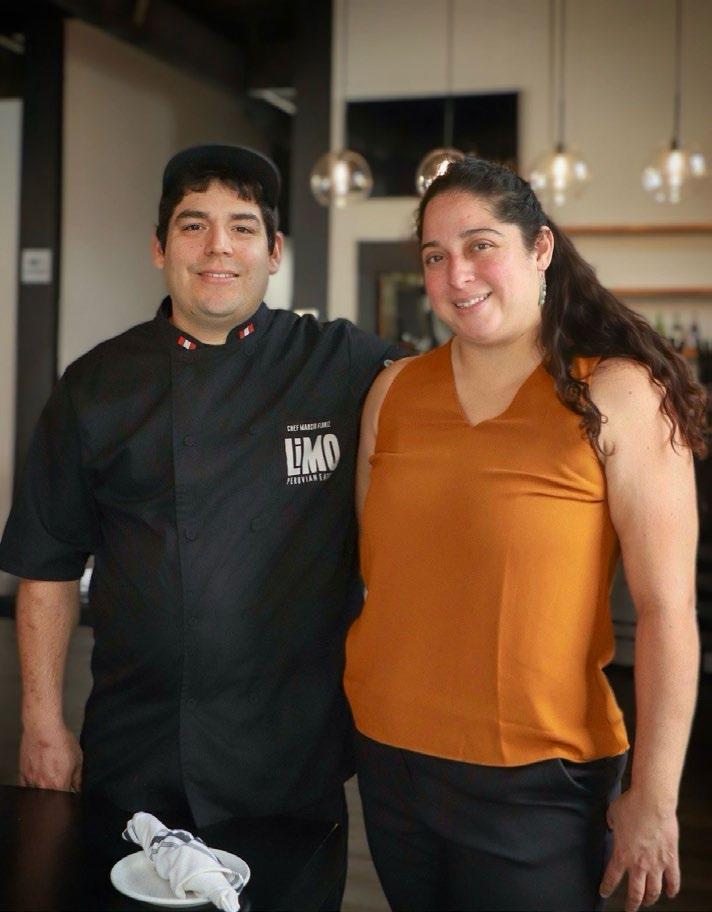
compartirla con todos y que sea apreciada en Tennessee. Es una gran sensación.
¿Qué significa para usted ser dueña de un negocio donde siente que la gente es parte de su comunidad de esa manera?
Para mí es una gran responsabilidad, sin duda. Tenemos muchos empleados que dependen de que nuestro negocio tenga éxito, para su vida y bienestar. Hay mucho estrés, pero también lo amamos. Nos llena el corazón cuando vemos nuestras reseñas, tenemos casi 700, y sentimos una gran satisfacción al saber que los habitantes de Nashville aman lo que traemos con nuestra comida peruana. El primer día en nuestro food truck solo hicimos $200, y ahora a veces tenemos filas donde la gente tiene que esperar para entrar a nuestro restaurante.
¿Puede hablar un poco sobre los retos de, creo que todos saben que dirigir un restaurante en cualquier momento es difícil, pero más recientemente creo que los retos se han hecho mayores para la gente en cualquier lugar donde se congregan personas hispanas. ¿Enfrentan desafíos allí y también en general al construir algo como esto?
Definitivamente hay desafíos con cualquier cambio que ocurra en general. Hemos
tenido un aumento en los precios de alimentos y equipos. Es muy difícil encontrar empleados en este momento. Estoy muy bendecida de que los empleados que tuve en el food truck se han quedado con nosotros por muchos años y tengo a sus familiares: mi gerente de cocina de preparación, su esposo, su hermana y su hijo. Tengo a muchas personas de esa familia en mi restaurante. Siento que es hermoso porque aman lo que hacen y lo respetan mucho. Aman a Limo por lo que representa, pero ha sido muy difícil encontrar empleados y definitivamente afecta, e incluso con los clientes, siento que a veces los clientes tienen miedo de venir al centro porque somos un restaurante peruano, así que tenemos clientes latinos, y siempre está eso. Pero tratamos de mantenernos positivos. Tratamos de ser parte de la comunidad. Estamos en una ubicación realmente hermosa en East Nashville donde sí siento el amor y la compasión y solo queremos mantener eso. Hacemos lo que podemos para mostrar que los latinos somos trabajadores y que queremos ser parte de la comunidad y respetarla.
¿Cómo ve el futuro del negocio?
Parte de nuestro plan es crear un viaje donde 30 personas puedan ir con nosotros
a Perú y viajar para tener una experiencia culinaria, pero también vivir otras experiencias culturales. Ese es nuestro sueño: darles a nuestros clientes y a la comunidad algo que recordarán por el resto de sus vidas. Realmente estamos tratando de construir este espacio donde la gente coma y aprenda unos de otros, para amarse unos a otros.
¿Qué es lo que más le emociona de eso? Dios mío, todo. La gente a menudo tiene miedo de viajar a otros países porque tal vez no hablan el idioma. Pero poder llevar a un grupo de personas todas de Nashville, compartir la experiencia allá y luego regresar con recuerdos de “oye, ¿recuerdas cuando hicimos esto en Perú?” va a ser genial. Ya lo sé y no puedo esperar a experimentarlo. Tenemos clientes a quienes les contamos y ya quieren estar en la lista de espera. Va a ser una experiencia que cambia la vida.
¿Puede hablar un poco sobre la experiencia de ser dueños y manejar un negocio con hijos? Obviamente dijo que fue parte del motivo por el cual su esposo quiso tener algo propio, pero ¿cómo ha sido en la práctica?
Cuando teníamos el food truck, fue fenomenal. Él solo tenía turnos de cuatro o seis horas y luego el resto del día con los niños. Ahora que tenemos un restaurante, nos encontramos en la misma situación donde estamos aquí 24/7, y es un reto, pero finalmente estamos en un punto donde nuestro equipo nos permite que solo uno de los dos esté presente, para que podamos dividirnos y estar con nuestros hijos. Nuestros hijos siempre han tenido prioridad, pero también sabemos que no estar aquí afecta la experiencia del cliente, así que trabajamos en equilibrar la vida y el trabajo y apoyarnos mucho en nuestra familia. Tengo a mi hijo de 14 años limpiando mesas los fines de semana y también ayuda a su papá. Ambos están orgullosos; incluso tienen y usan sus camisetas con el logo de Limo y no hay nada mejor. Ellos me hacen sentir orgullosa cada día.
¿Qué es lo que más le enorgullece en su recorrido hasta ahora?
Me siento muy orgullosa de mi equipo. Recuerdo después del Día de la Madre, fue uno de los días más ocupados que hemos tenido, y al terminar, lo logramos, cerramos, y ordenamos comida para todos porque la cocina y nuestros meseros estaban agotados, y nos sentamos todos juntos. Fue como “oh, lo logramos, sobrevivimos el fin de semana”. Estábamos todos muy cansados, pero ver sus caras de cansancio y también de orgullo por el trabajo hecho juntos me llenó de emoción. Yo solía trabajar en lugares a los que odiaba ir a trabajar, pero mis empleados disfrutan estar aquí y se enorgullecen de Limo y siempre quieren mejorarlo. No podría estar más orgullosa que de eso y de tener ese sistema de apoyo.
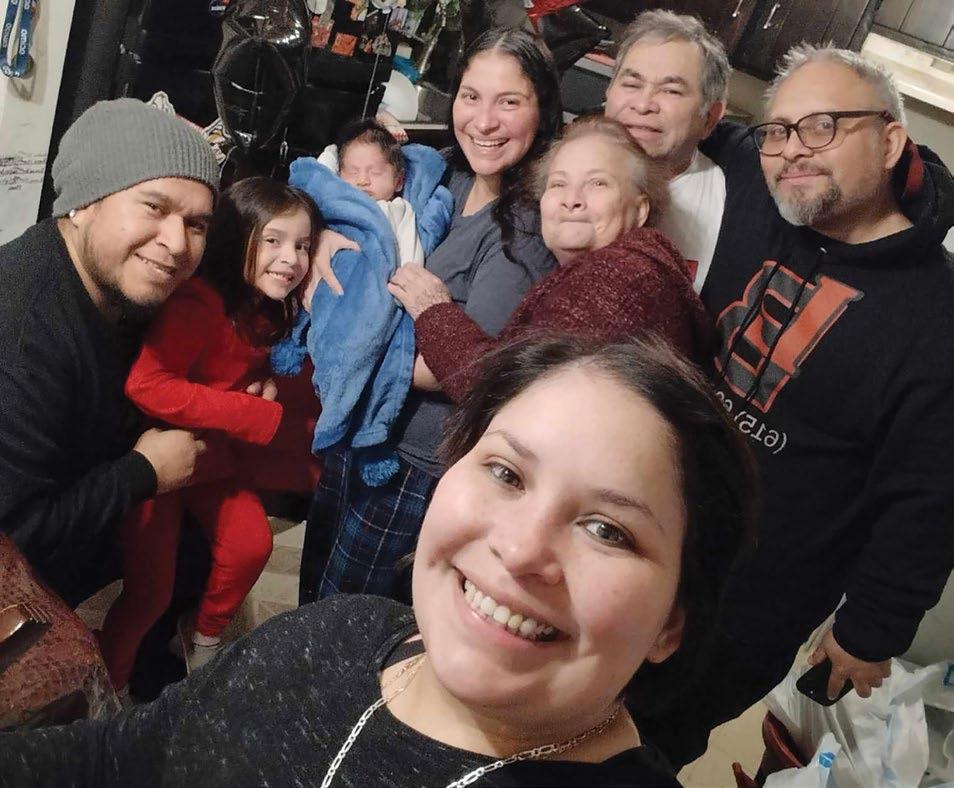
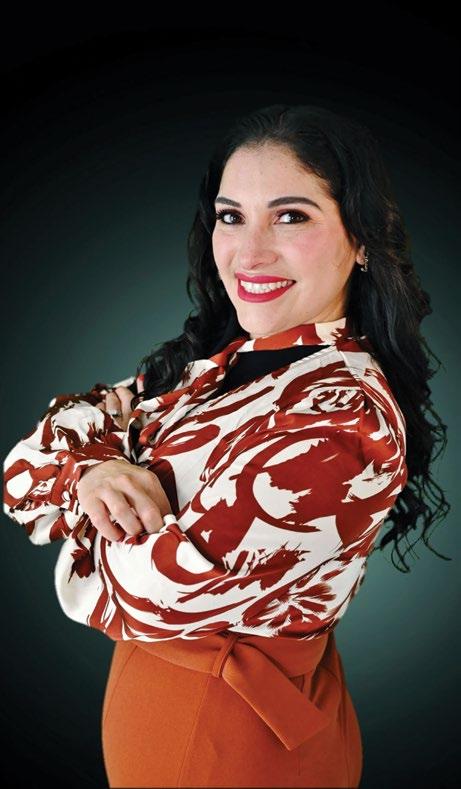
When you walk into LB Auto Repair in South Nashville, there’s a good chance you’ll be greeted not only by the smell of motor oil and the sight of cars in various stages of repair, but also by a four-year-old with big dreams. Her name is Lucy, and though she’s not even in Kindergarten yet, she’s already claiming her spot in the family business world. “She says she sells houses,” laughs her uncle, Jesus Salas Balcazar. “She’s our little CEO.”
That entrepreneurial spark runs through the entire family. Between Jesus, his sisters Perla and Ingrid, and their father, the family operates multiple small businesses in Nashville: LB Auto Repair, Perla’s beauty salon, and Ingrid’s real estate work and her husband’s business J. Any Fix, LLC. Together, they represent not only their own dedication and hustle but also the growing strength of Hispanic-owned, family-run businesses in Middle Tennessee.
“It’s always been a family thing,” Jesus says. “We started young as musicians — we’ve had bands together. My sister Ingrid sang Selena songs. From music, we’ve moved into fashion, then beauty, and then cars. Each of us followed our passions, but we’ve always supported one another as a family. That’s very important to us, to help each other follow our dreams.”
For Jesus, cars were the clear path. He studied auto shop in high school and worked alongside his father before launching LB Auto
BY AMANDA HAGGARD
Repair, which recently celebrated seven years in business. Perla, meanwhile, pursued hairstyling and fashion, building a clientele that has kept her salon open for 14 years. Ingrid combined her talents and her husband’s construction work into a real estate career, helping families buy, sell, fix up and invest in homes.
The family’s enterprises might sound diverse — engines, salons, houses —but what binds them is a shared sense of community and resilience. Perla recalls the challenges of COVID-19, which forced her to close a fashion business she had built before focusing fully on her salon.
“It was not easy,” she says. “But we adapted. We worked with both Hispanic and non-Hispanic clients, spoke English and Spanish, and used the internet and Google reviews to connect with people. That’s really helped us grow and to understand what we needed to do to bring in all kinds of people.”
Jesus echoes that adaptability when talking about LB Auto Repair. The shop, now in a newer location in South Nashville on Logan Street, has weathered everything from fluctuating car-part prices to the challenges of standing out in a city filled with repair shops.
“We’re not just fixing cars,” he says. “We’re building trust. Our neighbors bring their vehicles to us, the restaurant next door sends over cars for service, and in return we support their
businesses. It’s about giving back to each other.”
The family is active with the Nashville Area Hispanic Chamber of Commerce and the Franklin Chamber, which have provided mentorship and resources for small businesses like theirs.
“We’ve taken classes on marketing, taxes, and management,” Perla says. “Those programs really help us learn how to grow.”
The family also acknowledges the difficulties that Hispanic-owned businesses sometimes face in the current climate.
“We’ve seen people be afraid to come downtown,” Jesus says. “There are challenges, of course. But we try to stay positive. We want people to see Latinos as hardworking, as part of the community.”
Despite obstacles, there are moments of pride that keep the family moving forward.
For Jesus, one milestone came when a local construction company trusted him to service four of its vehicles in one week.
“It was our first big company job at the new shop,” he recalls. “That was huge for us.”
For Perla, it’s the joy of transformation — helping a client leave her salon smiling with a new look or traveling for international weddings to style brides on their big day. “That’s when I know I’m doing something right,” she says.
Ingrid, meanwhile, points to helping fam-
ilies build wealth through real estate. “It’s not easy, but it’s possible,” she says. “My husband and I work as a team — I sell the houses, he fixes them. We want to show people they can invest and grow.”
The next generation is never far from these conversations. Jesus, Ingrid and Perla say everything they do is in the spirit of family support and collective dreaming.
If one of us says, ‘I want to do this,’ the others say, ‘OK, let’s support it,’” Jesus says. “That’s the key to success — we don’t do it alone, even Lucy knows that.”
And while they may be busy running businesses, the family doesn’t forget to enjoy life in Nashville. They love the city’s culture, especially its mix of music, sports and food.
“Nashville is growing so fast, but it still feels like home,” Jesus says. “And as a Hispanic family building a lot and going after a lot of dreams, we’re proud to be part of that growth.”
Perla puts it more simply: “We are thankful. Thankful to Nashville for supporting us, and thankful that we get to be part of this community.”
The Salas family is a reminder that family, hard work and a little faith in each other can fuel more than just a business. It can fuel a tiny would-be CEO just trying to get in as early as possible on her dream.


Cuando entras a LB Auto Repair en el sur de Nashville, hay una buena probabilidad de que te reciba no solo el olor a aceite de motor y la vista de autos en varias etapas de reparación, sino también una niña de cuatro años con grandes sueños. Su nombre es Lucy, y aunque todavía no está en Kindergarten, ya está reclamando su lugar en el mundo de los negocios familiares. “Ella dice que vende casas”, ríe su tío, Jesús Salas Balcázar. “Es nuestra pequeña CEO.”
Esa chispa emprendedora corre por toda la familia. Entre Jesús, sus hermanas Perla e Ingrid, y su padre, la familia maneja varios pequeños negocios en Nashville: LB Auto Repair, el salón de belleza de Perla (Perla’s beauty salon), y el trabajo de bienes raíces de Ingrid junto con el negocio de su esposo, J. Any Fix, LLC. Juntos representan no solo su propia dedicación y esfuerzo, sino también la creciente fuerza de los negocios familiares hispanos en el centro de Tennessee.
“Siempre ha sido algo de familia”, dice Jesús. “Comenzamos jóvenes como músicos — hemos tenido bandas juntos. Mi hermana Ingrid cantaba canciones de Selena. De la música, pasamos a la moda, luego la belleza, y después los autos. Cada uno siguió sus pasiones, pero siempre nos hemos apoyado unos a otros como familia. Eso es muy importante para nosotros, ayudarnos a seguir nuestros sueños.”
Para Jesús, los autos eran el camino claro. Estudió mecánica automotriz en la secundaria y trabajó junto a su padre antes de lanzar LB
Auto Repair, que recientemente celebró siete años en el negocio. Perla, por su parte, siguió la peluquería y la moda, construyendo una clientela que ha mantenido su salón abierto durante 14 años. Ingrid combinó sus talentos y el trabajo de construcción de su esposo en una carrera de bienes raíces, ayudando a familias a comprar, vender, arreglar e invertir en casas.
Las empresas de la familia pueden sonar diversas — motores, salones, casas — pero lo que las une es un sentido compartido de comunidad y resiliencia. Perla recuerda los desafíos de la COVID-19, que la obligaron a cerrar un negocio de moda que había construido antes de enfocarse totalmente en su salón.
“No fue fácil”, dice. “Pero nos adaptamos. Trabajamos con clientes hispanos y no hispanos, hablamos inglés y español, y usamos el internet y las reseñas de Google para conectar con la gente. Eso realmente nos ayudó a crecer y a entender lo que necesitábamos hacer para atraer a todo tipo de personas.”
Jesús repite esa adaptabilidad al hablar de LB Auto Repair. El taller, ahora en una nueva ubicación en el sur de Nashville en Logan Street, ha resistido de todo, desde precios fluctuantes de autopartes hasta el reto de sobresalir en una ciudad llena de talleres.
“No solo arreglamos autos”, dice. “Estamos construyendo confianza. Nuestros vecinos nos traen sus vehículos, el restaurante de al lado nos manda carros para servicio, y a cambio apoya-
mos sus negocios. Se trata de devolvernos apoyo unos a otros.”
La familia participa activamente en la Cámara de Comercio Hispana del Área de Nashville (NAHCC) y en la Cámara de Franklin (Williamson Inc.), que les han brindado mentoría y recursos para pequeños negocios como los suyos.
“Hemos tomado clases de mercadeo, impuestos y administración”, dice Perla. “Esos programas realmente nos ayudan a aprender cómo crecer.”
La familia también reconoce las dificultades que los negocios hispanos a veces enfrentan en el clima actual.
“Hemos visto que la gente tiene miedo de venir al centro”, dice Jesús. “Hay desafíos, por supuesto. Pero tratamos de mantenernos positivos. Queremos que la gente vea a los latinos como trabajadores, como parte de la comunidad.”
A pesar de los obstáculos, hay momentos de orgullo que mantienen a la familia avanzando. Para Jesús, un hito llegó cuando una compañía local de construcción confió en él para dar servicio a cuatro de sus vehículos en una semana.
“Fue nuestro primer gran trabajo con una compañía en el nuevo taller”, recuerda. “Eso fue enorme para nosotros.”
Para Perla, es la alegría de la transformación — ayudar a un cliente a salir de su salón sonriendo con un nuevo look o viajar a bodas internacionales para peinar a novias en su gran día. “Es cuando sé que estoy haciendo algo bien”, dice.
Ingrid, mientras tanto, señala el ayudar a
familias a construir riqueza a través de los bienes raíces. “No es fácil, pero es posible”, dice. “Mi esposo y yo trabajamos en equipo — yo vendo las casas, él las arregla. Queremos mostrarle a la gente que pueden invertir y crecer.”
La próxima generación nunca está lejos de estas conversaciones. Jesús, Ingrid y Perla dicen que todo lo que hacen es en el espíritu de apoyo familiar y sueños colectivos.
“Si uno de nosotros dice, ‘quiero hacer esto,’ los demás dicen, ‘OK, vamos a apoyarlo,’” dice Jesús. “Esa es la clave del éxito — no lo hacemos solos, hasta Lucy lo sabe.”
Y aunque estén ocupados manejando negocios, la familia no se olvida de disfrutar la vida en Nashville. Aman la cultura de la ciudad, especialmente su mezcla de música, deportes y comida.
“Nashville está creciendo muy rápido, pero todavía se siente como hogar”, dice Jesús. “Y como familia hispana construyendo mucho y persiguiendo muchos sueños, estamos orgullosos de ser parte de ese crecimiento.”
Perla lo resume más simplemente: “Estamos agradecidos. Agradecidos con Nashville por apoyarnos y agradecidos de poder ser parte de esta comunidad.”
La familia Salas es un recordatorio de que la familia, el trabajo duro y un poco de fe en los demás pueden impulsar más que solo un negocio. Pueden inspirar a una pequeña futura CEO que solo intenta entrar lo antes posible en su sueño.
BY CHUCK C., CONTRIBUTOR VENDOR
Hello readers, in this installment of Vendor’s View, I would like to discuss an issue which has ben on my mind quite a bit lately.
That is the occupation including sleeping/camping on our public sidewalks and public spaces here in Nashville. Two streets that immediately come to mind are Middleton Street and Drexel Street. Many of our unhoused neighbors have been calling Middleton and Drexel streets home for many months. Recently there have been complaints from the neighboring businesses and residential properties concerning
the appearance and conduct of those who choose to occupy the public venues.
This, of course, is motivated by the, “out of sight, out of mind” concept and has never really solved anything int he past. Our unhoused neighbors need to be seen and heard and their presence in their current state should be a wake up call to all who pass by. It is a way of expressing in real time the terms, “here is how we live and we need help.”
Some nearby social agencies including the police and others have tried to rid our unhoused brethren from their rightful spot
to occupy the public spaces. The threats of citations and refusal to receive services from certain agencies instils fear and intimidation, which is destructive in nature and creates barriers to those who so desperately need help.
I am ashamed to say that one of Nashville’s oldest and previously respected agencies has begun a policy of suspension and refusal of services to those on certain streets such as Drexel and others. As long as no laws are broken one of the few platforms our friend have is the right to occupy the public space lawfully. Our presence — Our voice.
BY MARK N., CONTRIBUTOR VENDOR
This statement was my counselor’s favorite saying or philosophy. I would complain to him about this and that, this person or that person, this situation or that situation. His reply would simply be, “What is really going on?” I finally figured the words out. Life is not to be lived on the surface. There are many undertones that are unseen or have no emotions, and going unchecked or not recognizing them your problems will persist. When viewing the world today many things have changed since the days of my youth. I am not a person that screams that the sky is falling, but I do wonder what is really going on?
SUBMITTED BY
HOWARD P., CONTRIBUTOR VENDOR
• Why isn’t the number 11 pronounced onety-one?
• If 4 out of 5 people SUFFER from diarrhea...does that mean that one out of five enjoys it?
• Why do croutons come in airtight packages? Aren’t they just stale bread to begin with?
• If people from Poland are called Poles, then why aren’t people from Holland called Holes?
• If a pig loses its voice, is it disgruntled?
• Why is a person who plays the piano called a pianist, but a person who drives a race car is not called a racist?
• If it’s true that we are here to help others, then what exactly are the others here for?
• If lawyers are disbarred and clergymen defrocked, then doesn’t it follow that electricians can be delighted, musicians denoted, cowboys deranged, models deposed, tree surgeons debarked, and dry cleaners depressed?
• Do Lipton Tea employees take “coffee breaks?”
• What hair color do they put on the driver’s licenses of bald men?
• Why do they put pictures of criminals up in the Post Office? What are we supposed to do, write to them? Why don’t they just put their pictures on the postage stamps so the mailmen can look for them while they deliver the mail?
• Is it true that you never really learn to swear until you learn to drive?
• If a cow laughed, would milk come out of her nose?
• Whatever happened to Preparations A through G?
SUBMITTED
BY
JIM P., CONTRIBUTOR
VENDOR
“Necessity never made a good bargain.”
- Benjamin Franklin
Then I read Matthew 24:10-13, “And then shall many be offended and shall betray one another, and hate one another, and false prophets shall rise and shall deceive many, and because iniquity shall abound, the love of many shall wax cold. But he that shall endure unto the end, the same shall be saved.”
”SHORTY” R., CONTRIBUTOR VENDOR
Our president Mr. Donald Trump raised the retirement age to 67. The president says we are living longer. President Trump has never mentioned what the early retirement age is.
The Social Security Administration says you can retire early if you have enough credits built up. And you can get penalized if you don’t have enough. The money is still mine, isn’t it? So, is it possible to retire at 67 years of age? What is the age that you can retire and enjoy it without getting a penalty? President Donald Trump says you can still retire at 62 years of age, but you can have a penalty.
President Trump says you can get a part time job and he won’t penalize you.
My opinion on this matter is let me work as much that I am able to, to let me enjoy this dream.
Created by Mccollonough Ceili

When the body is at ground level, Under normal pressure, Blood boils at 212* Fahrenheit. But when the body is placed In the pressure cooker of endless Indefensible racism and Social injustice, The blood boils at a Much lower temperature. True leaders ease the pressure
By quoting Aeschylus:
“And even in our sleep, Pain which cannot forget, Falls drop by drop upon the heart
Until in our own despair, Against our will, Comes wisdom through The awful grace of God.”
Or by leading the congregation in Amazing Grace:
“Through many dangers, toils, and snares
We have already come, ‘Twas Grace that brought us safe this far, And Grace will lead us home.”
Today our leader threatened Military action against An anguished community
That has just seen too much, And quoted Walter E. Headley, With the poetic couplet, “When looting starts, The shooting starts.”
It is a harsh, troubled age, As Aeschylus knew, “When a tongue at The wrong moment Shoots off sharp-pointed words To rouse and hurt the spirit.”
JEN A.
We are inspired by goodness
To walk a path beyond loneliness
To a calm, clear forest pond Where frogs ribbit And the scent of the good earth Floats on every gentle breeze
We’re inspired by the goodness Of our family
We’re inspired by the goodness Of our neighbors
We unite with the goodness Of our community
To accomplish great acts Of humanness Of charity Of compassion for one another Compassion Is the natural state Of the human mind

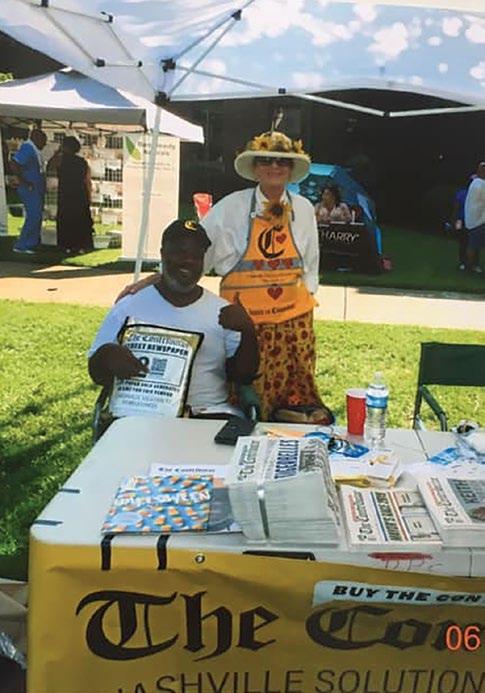
The grieving women carried the limp, Bullet-riddled bodies Of their children
Up the steep steps to the Capitol And gently laid them down Upon the cool marble floor
Before the anointed Pilates of the day The callous Pilates
Unmoved by the display
Ordered their Praetorian Guards
To drag the distraught women away While they stepped over the wee bodies The gold bounty for their indifference Jingling in their pockets
The chair
Found by the side of the road
Hauled through time
On the strong frame of a bicycle
To a room I sit
My mind travels Zigging and zagging
Through the past
At the speed of light
Until confronted at the
Fluttering dark, uncertain curtain Of the future
When the sun goes down
And I am left alone in the dark
I sit upon the cold, bare ground
Picking at my wounds
To release the pressure
Created by noxious toxins-Mementos of bygone days--
That hide deep in the many layers
Of my thick skin
I attempt with a surgeon’s skill
And a sometime trembling hand
To loosen and cleave
Around the edges Of the dark rough-cast scabs
Formed after previous Nocturnal excavations
Hoping not to draw blood
But the blood always comes
We share our truth, To make fine art, By reworking the shattered remnants Of once broken lives.
Into a useful, beautiful mosaic. These pages give us voice. Your support gives us purpose.
Read The Contributor.

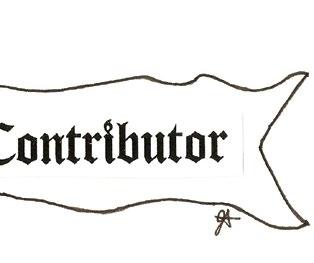
I wonder what seasonal varieties of conventional candy they’ll have on the grocery shelves this year, Libra. Maybe a peanut butter cup that’s also a mummy or an almond coconut eyeball. Could be a crispy wafer severed-finger or a gooey caramel zombie. One can only hope! Less guessing and more getting, Libra. That’s what a moment like this calls for. We can hypothesize about possible miniature candy terrors or we can put them in our shopping carts. I think you know what time it is.
A breakfast cereal character based on a 13th century Romanian general who got famous for his cruel and violent acts against the Ottoman empire. A breakfast cereal character based on a reanimated patchwork-corpse who symbolizes humanity’s existential anger at God. A breakfast cereal character based on a barely-visible spirit that haunts the world after death, purposeless, longing for its own annihilation. All your favorites are back, Scorpio! And now with more marshmallows! I apologize if my ambivalence is showing. It’s just that I’m amazed at our collective ability to cartoonify our deepest fears. It’s probably what saves us, as humans. We know more than we can possibly make peace with, so we make cereal instead. Pour yourself another bowl, Scorpio. Listen to the crunch, taste the sweetness, and feel the dread lift.
This year my neighbor’s yard has a Halloween-space-theme! Astronaut skeletons flying in a rocket made of bones! One does a spacewalk, stretching their bony arm to reach for the loose leash of a skeletal dog, who’s running away in an adorable space-helmet, happily carrying a detached arm-bone in his teeth. This is who we hope we are at our core, I guess. Strip away the skin and muscle and we’re just a bunch of silly skeletons living out fantasies of adventure and community. It’s a way of seeing ourselves, Sagittarius, and a way to feel something besides lonely. But this scene can be more than a yard-diorama. Keep your skin on and knock on your neighbor’s door. See if they’ve got time to hang out, fully embodied and together — and watch a fleshy earth-dog run laps with a bone.
You’ve still got that mask in the hall closet. The rubber face of an old president known for being a bad leader and a good liar. You can still remember the way it smells when you wear it, like hot breath and warm plastic. Seems like it’s from a simpler times, Capricorn. When powerful people who’d done real damage to the world could be reduced to exaggerated features and empty eye-holes. But I think that’s just what time does. Turns the horrors of the present into a stretchy rubber memory. Still that’s nothing to relax into. It’s a question. What can you do to help the people around you who are hurting? Before today’s faces turn into masks and bad memories you’re still really here and you can still really help.

I remember that letter you wrote me a couple of years ago, Aquarius, asking what to do with all the full-moon craziness in our deteriorating world. Or, more accurately, asking why I hadn’t offered any better solutions already. Of course, you’d been through all the things that we all went through together — the ones that made the headlines. But you’d been through more than that, too. And still, you hoped we could all get through it as a team. You were alone but you wouldn’t settle for being a lone wolf. I didn’t have a very good answer for you back then, but now I see you were offering the answer to me. Work together. Support each other. Don’t settle for new broken systems to replace the old broken ones. Enjoy the good potato chips while you can. Thank you, Jen. We’ll try our best to remember.
It always felt like Halloween at your house, Pisces. With the creaky iron gate out front, the spider-webs in the corners of the porch, and the heavy metal posters in your brother’s messy bedroom. We’d play horror video games in the dark until your mom would scare us to death banging on the glass door to the den, her bath robe hanging while she mumbled through her mouthguard that we had to go to bed. And we’d jump and scream and turn off the TV and then laugh and scare each other for another hour until one of us fell asleep. It used to be fun being scared. But it’s less fun now. Watching bank balances dip lower and bills stack higher while the headlines say to prepare for something worse. But if we can get less alone, Pisces, if we can come over and stay up late, I think we can still laugh about it and face our fears together until one of us falls asleep.
That beautiful butterfly that died in the screen of the back porch last year is still as bright as it was when it was fluttering. It’s like if you could just breathe on it right or give it a static shock, maybe it would come back to life and fly away. I assumed it should decompose or at least fall apart, if time does what it’s supposed to do, but there must be something about that window that kept it in-between. What’s the thing that’s frozen in your sunny collection, Aries? Still beautiful but lifeless. It might be time to let it go and see what live notion takes its place.
I remember the year I made my own robot costume out of cardboard boxes and mylar tape. A coat-hanger antenna and the guts of my busted scientific calculator were, I thought, a robotic enough finish. But I couldn’t really see through the mesh in the mouth, so I spent a good bit of the party casually flirting with the ficus in the corner that I thought was Marcy Thornton in a Poison Ivy costume. You might find yourself behind a lot of layers this week, Taurus. It might be too many. If you don’t feel like you’re being understood, start by taking the cardboard box off your head. It might become more apparent what to do from there.
I told you, Gemini, I don’t really like Halloween stores. All the options make me anxious, and the pre-packaged stuff is so cheesy. Plus, I’ve already got a costume picked out, so why’d you have to bring me? Flowers printed on a plastic drape don’t make a “hippie costume.” Sunglasses and a fedora don’t make a “noir investigator.” And that orange jumpsuit that says “inmate” is just plain tacky. Let’s go home and you can come up with something that inspires you. Don’t let these brands tell you who you want to be. You’re going to figure that out on your own just fine.
What’s the time difference between here and Transylvania, Cancer? It’s just that I’m wondering if Dracula is awake right now or if he’s already asleep in his coffin for the day. It’ll be way easier to plan my afternoon if I know what he’s doing right now because if I start the task I’ve been avoiding and then I got a call from Dracula, I’d have to stop everything and it would probably change my plans. No, Cancer, I haven’t ever gotten a call from Dracula before, but that doesn’t mean it’s impossible. I’m just asking if you know what the time difference is. Fine. I guess sometimes we just have to start working, even if every possible variable hasn’t been ruled out.
Remember, Leo, while a dash of nutmeg enhances a seasonal pumpkin delight, high doses of nutmeg can be fatal. Optimists might tell you that one would never willingly eat that much nutmeg, but you and I are realists and I think it may be a good day to sort the spice cabinet with safety in mind. I’m not saying you need to throw anything out. I just think accurate labeling will be a benefit for you and everybody else who loves flavor and hates poison. Specificity is key, Leo. Communicate clearly. More than a dash.
There’s a little plastic skeleton I found at the bottom of the candy bowl at work and I’ve been staring at it all day. It’s rubbery and smiling and it reminds me that my life is not permanent. There was a world before me and there will be a world after I’m gone. So what are we gonna do about the time in between, Virgo. How can we use our skeletons to do the most good while they’re still enfleshed? Sit for a moment today and remember your bones. It’ll help you decide what’s next.
Mr. Mysterio is not a licensed astrologer, a trained detective, or an authorized werewolf. Listen to the Mr. Mysterio podcast at mrmysterio.com Or just give him a call at 707-VHS-TAN1.


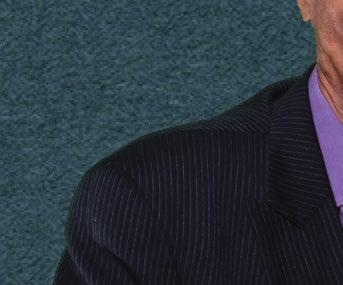





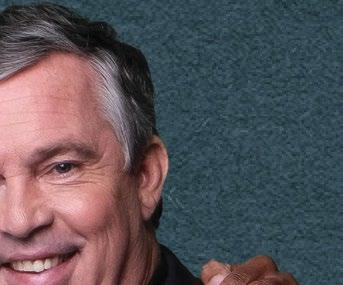
















‘Friendship’
When I saw the trailer for Friendship, I thought it looked like a new, fun Seth Rogen-style comedy about male friendship, male loneliness and male stupidity. Sold!
Like nearly everyone, I think Paul Rudd is hilarious, and I expected this to be a more sane version of the infamous Belushi/Aykroyd odd-couple-next-door flick, Neighbors . Instead, Andrew DeYoung’s fantastic feature film debut reminded me of Adam McKay’s subversive, misunderstood masterpiece The Other Guys and Ben Stiller’s perennially underrated dark satire The Cable Guy Friendship is a movie that upsets the expectations of bawdy buddy comedies to deliver something deeper, creepier, more human and disturbing than most audiences are prepared for. The surprising tones and twists only make this comedy extra hilarious, even as its sophisticated editing, photography and performances mark it as one of the best movies of the year.
In the film’s first act, we watch as Craig Waterman’s (Tim Robinson) suburban life is quietly falling apart: he’s an uninspired marketing executive whose florist wife Tami (Kate Mara) is a recent cancer
BY JOE NOLAN, FILM CRITIC
survivor. The health scare has taken a toll on their marriage, and their teenage son Steven (Jack Dylan Grazer) has an unusually close attachment to his mother, but maintains a chilly distance from his father. The family is preparing to sell their house, and nothing creates stress like moving.
When a bungled package delivery brings Craig into contact with his new neighbor Austin Carmichael (Paul Rudd), a charismatic local television weatherman, Craig finds an unexpected opportunity for connection. The two men bond over an evening that includes urban exploring, listening to old punk rock and sharing a mutual appreciation for paleolithic artifacts. Craig struggles to read social cues and can be benignly self-involved. Austin represents everything Craig wishes he could be — confident, worldly, effortlessly cool. Man crush confirmed.
What begins as a promising bromance quickly becomes complicated by Craig’s increasingly desperate attempts to secure the friendship. Craig constantly tries to ingratiate himself, but his obsessive personality and awkward social instincts
begin to alienate Austin. Craig tries to emulate his neighbor’s casual demeanor with his own family, but the more Craig pushes for intimacy and acceptance, the more people push him away, and his life begins to spiral out of control.
As Craig’s fixation intensifies, consequences ripple through every part of his life — his job, his marriage, his relationship with his son, and his standing in the community. Craig’s attempts to recapture the connection he and Austin shared when they first met lead him down increasingly chaotic paths, with each zany misstep disturbingly compounding the next. The film follows Craig’s descent as his desperation to belong transforms from endearing awkwardness into something more destructive.
The journey is alternately upsetting and uproarious, with the imbalances consistently tipping over into laugh-outloud physical comedy and line readings. DeYoung and Rudd collaborate to make Austin a slightly toned-down version of his weatherman persona from Anchorman, Brian Fantana. Rudd’s take is bigger-than-life, just a little unreal. In fact,
most of the characters in the movie seem to inhabit a heightened, comedy feature reality. But Robinson’s Craig is operating in a completely different context. And the collisions — literal and figurative — between Craig and the people and places, and cars and sliding glass doors he plows through are sometimes as tragic as they are sidesplitting.
Friendship is one of the most unique comedies I’ve seen in a long time. In addition to the director and great cast, cinematographer Andy Rydzewski and editor Sophie Corra also deserve credit for making the look and pace of this picture support and reinforce its unusual tones and temperament. If you’re willing to embrace discomfort and loneliness as a path to insight and connection — and gut-busting laughs — Friendship goes where most comedies don’t dare.
Friendship is streaming on HBO MAX.
Joe Nolan is a critic, columnist and performing singer/songwriter based in East Nashville. Find out more about his projects at www.joenolan.com.
